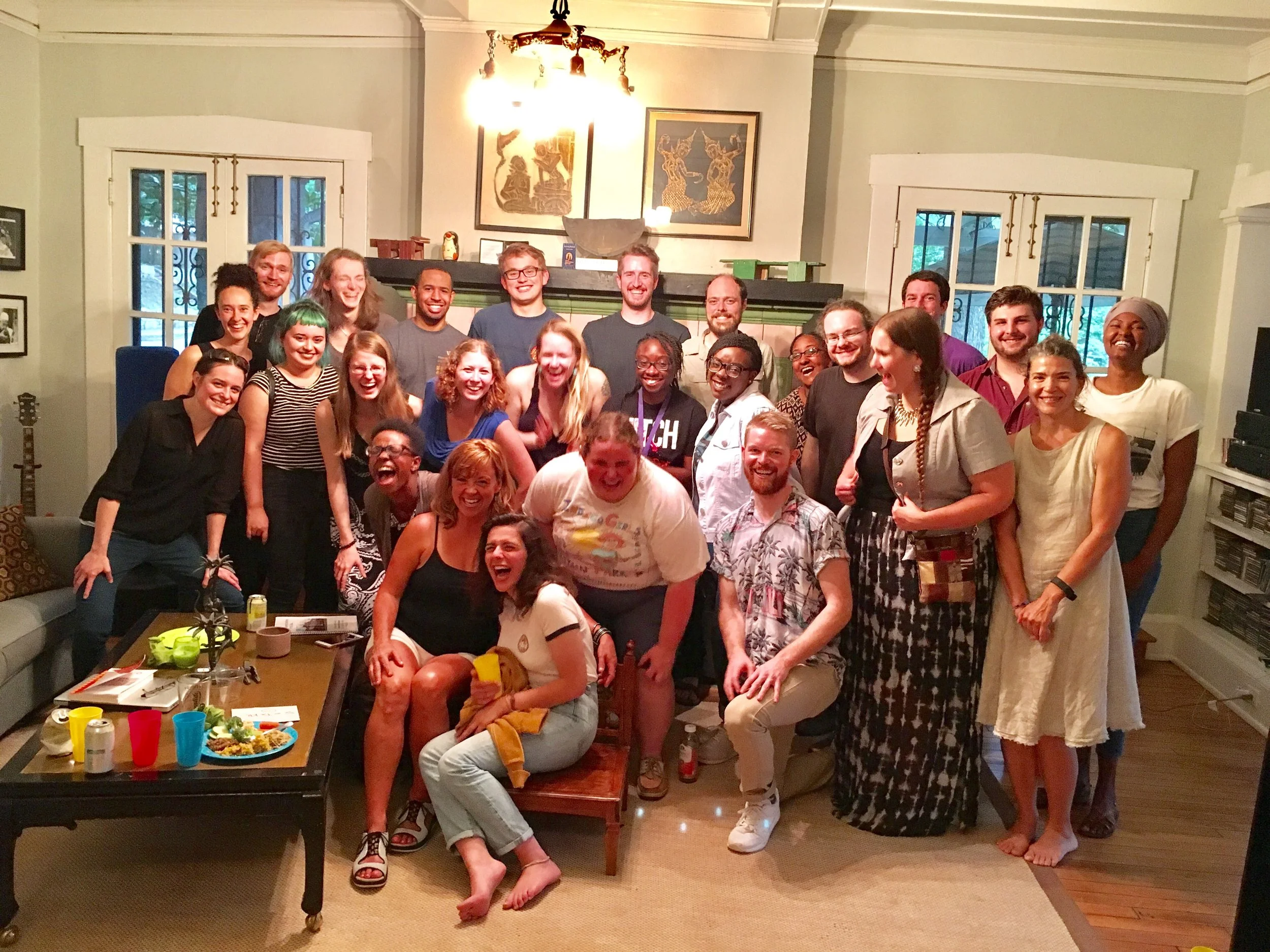Start weaving your fabric.
On Sunday night, I finished teaching a six-week personal writing class, and decided to close with this quote from Dani Shapiro's Still Writing: The Perils and Pleasures of a Creative Life (pp. 192):
"Every writer has a fabric. The most intense moments of our lives seem to sharpen and raise themselves as if written in Braille -- this is where our themes begin to take hold. Explore deeply enough and you will find strange and startling questions to grapple with on the page.
We do not choose this fabric as if browsing the aisle at Bloomingdale's. ...Whether or not we are fond of our tiny corner of the universe, it's all we've got. ...It is the truest lesson I know about writing -- and about life -- that we must always move in the direction of our own true calling, not anyone else's."
I had scribbled lots of underlines and stars around this passage, which appears towards the end of Shapiro's reflective memoir on the writing journey. (And I felt lucky enough to get to hear her speak at Goddard College last summer.) Frantic underlining/starring tends to be my response when I read something that I feel deeply in my gut -- mainly because it's something I've wanted to put words to for a long time. Every writer has a fabric. Yes, Dani!
Of course, you can go even further than that: Every person has a fabric.
So does that make us all writers? I think that it does, but of course it's up to each individual to put that into practice. And hey, maybe you express and explore your fabric through a different creative medium. Maybe words stop you in your tracks the way numbers stop me. Maybe painting or sewing or dancing is your way of processing the knots and frays of your own personal fabric. That's fantastic!
But if you're thinking, "Hey, I don't know if I have an artistic, creative way that I automatically turn to in order to process my life..."
Or, "I've only ever written for school or work -- I'm not sure that I would even know how to begin to use writing to explore my life's fabric..."
Or, "I'm so busy as it is," or, "Are you kidding me? I'm not a writer!..."
Take a beat. A moment. Five minutes.
Think on your fabric. Scribble bits of it down on a spare scrap of paper.
Atlanta, born and raised
Big extended family
Church community
Goodie two shoes; scared to get in trouble
Sick a lot/asthma as a kid
Shy, except with family/at church
Perfectionist older child
Voracious reader
... And that's just the beginning. The first layer of my fabric. Actually, I suppose it goes deeper than that -- I could have started with the base that was laid before me. Great-grandparents: Irish immigrant minister + missionary born in China, judge in Savannah, mill manager in Alabama...
Memories, character traits, experiences, sorrows, joys, interactions -- some small, some significant, all part of weaving our personal fabric, piecing it together, and claiming it as our own.
I think that often, it's the claiming that can be the hardest part. Putting your life down on paper is an act of ownership, which can be scary, even if we're the only one who will ever see the scrawl on the page.
And yet, if you have courage to stake your claim, to put pen to paper, I believe that you will only grow stronger.
It's been a pleasure to watch and listen to the adults in my class grow more certain of their authentic voices, exploring where they've been and where they are in life. "I'm not a writer," one of them told me once. "This is interesting to me, but you all will probably think it's boring," another said in prefacing a piece. And as soon as they've finished reading out loud (another courageous action!), I cannot jump in quickly enough. "Are you kidding me? That was amazing! The opposite of boring! Your emotion, your voice... so strong! You are a writer!"
It never fails. This work is a gift.
You have a fabric. Precious and priceless. Your very own. Have you started weaving?
P.S. Have questions? Want to start weaving/writing? Email clasbury10 [at] gmail [dot] com.






